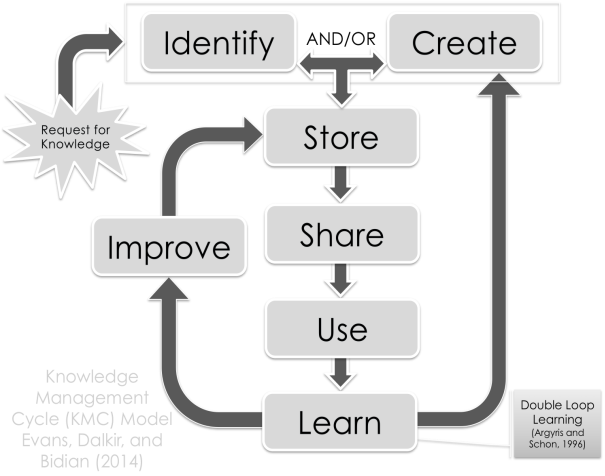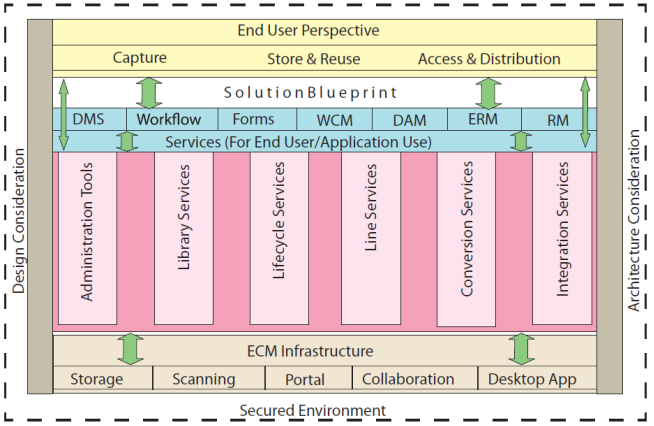INTRODUCTION
In this assessment my international organization is TATA Motors Ltd. INDIA. Which I have selected for the analysis. I will describe the identified learning or development programme(s) of TATA Motors Ltd. In this case study Company’s website, annual report and other published materials have been used by me. My aim is to explore and validate how this organization achieves competitive advantage through knowledge management and organizational learning, Organisational knowledge, learning organisational and suggest at least two new programmes or initiatives to either build organizational knowledge, encourage organizational learning, build a learning organization or foster knowledge management and support these suggestions of how case study organization could implement such new programmes or initiatives.
ANALYSIS
Learning is the grasping of knowledge or skills through practice or someone’s own experiences, or by being taught by others. It is focused to change the human behaviour such as physically, mentally and socially. Organisational learning is the process where we can retain, create and transform the knowledge within the organisation. After gaining experience organisation improves day to day and from this experience, it is able to create knowledge (Hamza’s PPT, 2017).
Associations that make, obtain information and go out on a limb of experimentations continually in quick evolving commercial centres, accomplish the experience through gaining from their examinations, history and best practices of workers and different associations, committing errors, exchanging information rapidly and productively all through the association for fuse into everyday exercises, keeping up persistent representative learning, basic intuition and new thought.
Learning Organisation is the process where we create a culture that encourages and supports continuous employee learning, critical thinking with new ideas, allow mistakes and where values employee’s ideas.
The main aim of “Learning” is to acquire the “Knowledge”. So, the knowledge always begins with the individual and as a justified personal belief it gained through personal experience, observation, education, experiments and even personal achievements. According to me Organizational knowledge is the company asset where we can’t be evaluating its cost and can’t specify with the name. When individuals pool their knowledge within an organization, that knowledge can give the organization advantages over others in the same field (Businessdictionarycom,2017).
If i will talk about the Knowledge is an awareness or understanding of someone or something, like facts, information, descriptions, or skills, which is acquired through experience or education by perceiving, discovering, or learning. There are two types of knowledge:
Tacit Knowledge is highly personal, difficult to transfer one person to another person, deeply rooted and its always unwritten, unspoken. Where Explicit knowledge is articulated and I can say it’s an existing knowledge could be in written form, recorded form or i can say it’s always available in tangible form like books, videos, and audios. Some we face the problem in restoring or transfer our knowledge with others. Knowledge management is the process of creation, acquisition, restoration, keeping, disseminating, sharing, applying and using knowledge has a mission to solve this problem. 
By operating these processes in the organization through support systems, methods and involving employees to take part in them, knowledge management is defined as organizational medium and used to reach the improvement of the organizational knowledge values, decisions, business practices, services, relationships, behaviours, efficiency and organizational performance as a whole.
TATA Motors Limited, INDIA is part of the USD 100 billion TATA group founded by Jamsetji TATA in 1868. Maintainability and the soul of ‘offering back to society’ is a center rationality and great corporate citizenship is unequivocally installed in its DNA. TATA Motors is India’s largest automobile company. It convey to the client a demonstrated legacy of thought initiative concerning client centricity and innovation. They are driving the change of the Indian business vehicle scene by offering clients driving edge auto innovations, bundled for power exhibitions and most minimal life-cycle costs. It’s new traveller autos are intended for unrivalled solace, network, and execution. What keeps it at the front line of the market is emphasis on future-preparation and its pipeline of tech-empowered items. The design and R&D centres located in India, the UK, Italy and Korea strive to innovate new products that achieve performances that will fire the imagination of GenNext customers. Across the globally dispersed organisation today, there is one thing that energises and drives all of people and their activities – and that is the organisation mission “to be passionate in anticipating and providing the best vehicles and experiences that excite the customers globally” (TATAmotorscom, 2017).
In the annual meeting of board of directors they committed on training and development programme of its employees and they focused approach to address all capability gaps and prepare all employees for changes in the external environment, like it enables meeting the organization’s strategic objectives (Tatamotorscom, 2017).
All board of directors to decide for the training & development system addresses development needs of various segments of workforce through the Tata Motors Academy (TMA). There are well defined Manufacturing Excellence Centre & Innovation, Commercial, Corporate, Management Development and Global Leadership are a part of TMA these Centres got a Centre of Excellence (CoEs). These CoEs address the needs of different categories of employees and functions through the classroom interventions, external programs as well as an in-house learning management system (LMS) based online platform. Tata motors academy offers learning involvement at each level of an employee’s transition in the organization beginning with his/her joining. High potential representatives at senior levels are likewise chosen for the Fulbright partnerships for administration in administration(Tatamotorscom, 2017).
TATA Motors Limited runs a skill development programme called Kaushalya (TATA MOTORS ACADEMY). The program will include modules in light of the aptitudes for configuration, design, engineering, manufacturing, automobile production, sales & service as well in various support functions with a focus on quality, productivity, dexterity, discipline and safety (TATAmotorscom, 2017). There is an another management training centre called TATA Management Training centre (TMTC) this training centre totally focused on Organizational Psychology,Leadership Development, Human Resources, Strategy and Innovation, Marketing, Finance, Corporate Governance, and many others.
TATA Motors Limited include VConnect is the umbrella brand for all Employee Engagement Initiatives in TATA Motors Limited. The VConnect logo symbolizes our organizational endeavor to bring all employees together and provide an open platform that enables free exchange of ideas, knowledge and aspirations. The various initiatives under VConnect are undertaken with an objective of improving the way our employees feel by bringing in a sense of belongingness (TATAmotorscom, 2017).
In TATA Motors learning programmes, I found that there is a Four Quadrant Approach of learning uses by the company.
Socialisation where employees share their tacit knowledge among member that create common mental models and abilities. Socialization transfers tacit knowledge most frequently through the medium of shared experience.
Externalisation the process of articulating tacit knowledge and transforming it into models, concepts, analogies, stories and metaphors that can be communicated by language. Combination is the process of combining or reconfiguring bodies of existing knowledge in order to generate new explicit knowledge, by addition. It is the most common process in formal education. In organisations, it is obtained by the exchange of explicit knowledge among members, as in formal reunions.
Internalisations where employees share their explicit knowledge to tacit like new employee share his previous employer’s experience.
Amongst various accolades, TATA Motors also recognized as the Best Learning Organization of Asia (2011-12). Several reputed organizations across various sectors were evaluated through a rigorous, multi-stage, independent assessment process. This evaluation process comprised of five different tests on having a defined learning agenda, managing discordant information, avoiding the repetition of mistakes, avoiding the loss of critical data with people exits, and acting on what the organization knows (TATAmotorscom, 2017).
TATA Motors Ltd. has developed a broad Enterprise Content Management (ECM) landscape architecture. Enterprise Content Management has several components that enable enterprises to manage content efficiently and effectively. (Rao.Anand.,2004).
These are Document Management System (DMS), Business Process Management(Work Flow), Forms Processing(FORM), Web Content Management (WCM), Digital Asset Management(DAM), Enterprise Report Management (ERM), & Records Management (RM)

TATA Motors developed its own training centre in 1966 at Pune, INDIA, Its knows as TATA Management Training Centre (TMTC). It’s a valuable and unique learning resource that supports the mission to facilitating leadership development, through the dissemination of the knowledge and insights of practicing business executives, thinkers and experts. All managers and leaders possess significant experiences and ideas that can be a rich source of learning for others, and organizations therefore increasingly appreciate the benefits of collaboration, free exchange of ideas, sharing of best practices and thought leadership. It is thus critical that practitioners reflect on their experiences and develop an ability to express and share their knowledge and insights (Webmaster, 2017).
The main objective of these kinds of training and development centres are improvement of organisational performance through dissemination of the latest knowledge and skills among practicing managers, to facilitation of attitudinal and behavioural changes, provide solutions for organisational issues and to development of learning organisations.
The procedures of distinguishing the necessities of preparing, fusing, taking part in preparing activities to ace the aptitudes required for individual occupations and to advance inside the organization. Tata Motors Offering around many programmes a year, conducted by in-house senior faculty from academics and business, supported by experts from the best of Indian and international B schools. TMTC started its e-learning programs (all top managers and leaders can join the e-learning at any time).
Leadership development programmes include
E-learning programmes include
A Unique self-paced programme is conducted named TATA – Harvard Manage Mentor self-paced e-learning program by Harvard Manage Mentor, in association with Harvard Business School Publishing, providing many different programmes for employees (TmtcTATAcom, 2017).
TMTC had the honour of hosting training programmes for the Indian Administrative Service (IAS), the Indian Police Service (IPS) and the Indian Foreign Service (IFS).
According to my analysis i will suggest basically 3 aspects of CRM, which can each be implemented in isolation from each other.
You have to be 100% sure of the quality of your product to give a money-back guarantee. This describes us perfectly. Make sure that this guarantee is totally transparent.
Read moreEach paper is composed from scratch, according to your instructions. It is then checked by our plagiarism-detection software. There is no gap where plagiarism could squeeze in.
Read moreThanks to our free revisions, there is no way for you to be unsatisfied. We will work on your paper until you are completely happy with the result.
Read moreYour email is safe, as we store it according to international data protection rules. Your bank details are secure, as we use only reliable payment systems.
Read moreBy sending us your money, you buy the service we provide. Check out our terms and conditions if you prefer business talks to be laid out in official language.
Read more